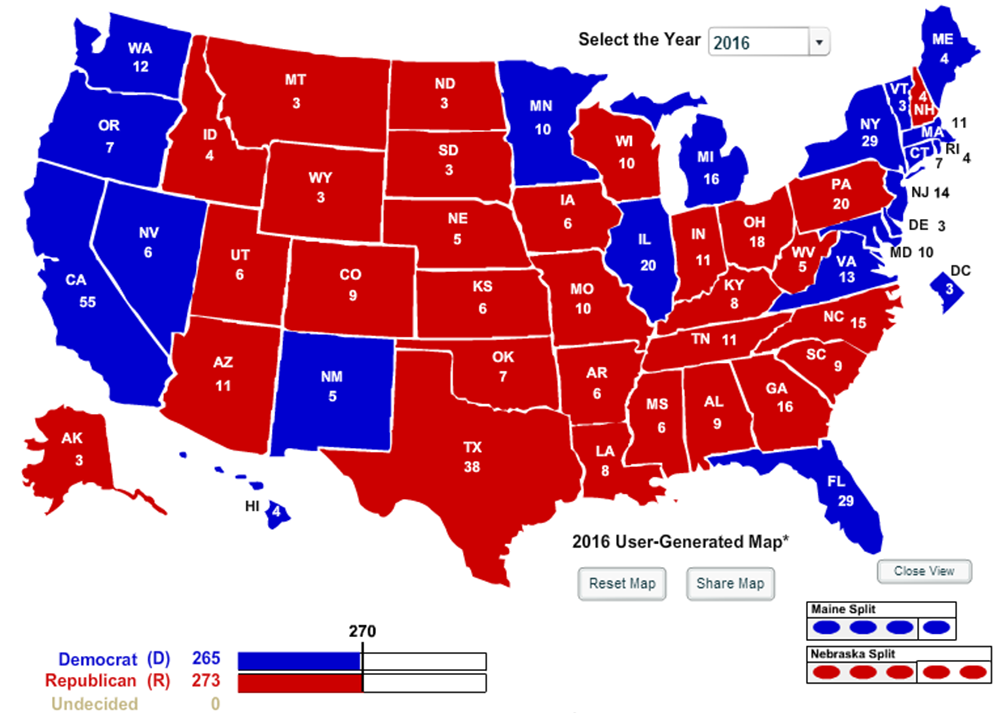Kerby Anderson
The Electoral College has become a controversial issue in the last two decades. But a recent federal court ruling could make it even more controversial. Judges in the Tenth Circuit Court of Appeals ruled that presidential electors do not have to follow the results of the popular vote in their states. Some worry that a single elector could decide the outcome of a presidential election in a close election.
The decision was a victory for one Colorado elector who decided not to vote for Hillary Clinton in the 2016 election. Instead, he crossed out her name and wrote in John Kasich (then the Republican governor of Ohio). The Colorado Secretary of State removed him and brought in another elector who voted for Clinton.
The court ruled that once electors are chosen and report to their state capitol in December, they cannot be removed nor can the state nullify their votes. In the past, the court has ruled that a state may bind the electors. But those laws are weak, and the penalties for being a faithless elector are nominal.
It is worth mentioning that the ruling from Colorado conflicts with an earlier ruling from the state of Washington. The state supreme court there ruled that electors must follow the results of the popular vote. Now that there are conflicting rulings, it is likely that these cases will make their way to the Supreme Court.
Given the current makeup of the Supreme Court, it is difficult to predict how the justices will rule or whether they will even rule at all before the 2020 election. Nevertheless, I predict that the high court will uphold the Colorado ruling given the fact that in the past there have been faithless electors in America’s history. And I also predict that some justices will comment on the constitutionality of the Electoral College given the fact that we have had two elections in less than two decades decided by the electoral vote rather than the popular vote.
 Listen Online
Listen Online Watch Online
Watch Online Find a Station in Your Area
Find a Station in Your Area









 Listen Now
Listen Now Watch Online
Watch Online
